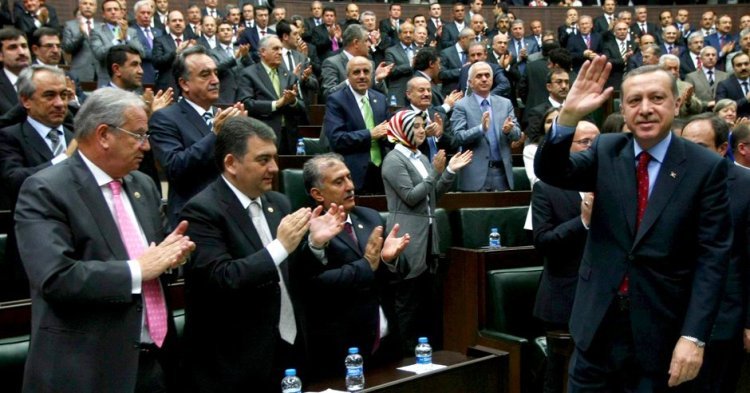The municipal elections in Turkey on 30 March manifested the political power relations of the past years. The governing Justice and Development Party AKP remains by far the strongest party in the municipal councils with 43 percent, followed by the main opposition party, the Kemalist CHP (26 percent, the ultra-nationalist MHP (18 percent) and the Kurdish BDP/HDP (6 percent). Prime Minister Erdoğan who wants to become president in August seems stronger than ever, the EU is only a minor issue.
On 9 April 2014, roughly a week after the municipal elections in Turkey, Yiğit Bulut, wrote in daily Star in a column entitled “The New West, America, Turkey and the New World Order”: “The Western power centre with all its values will only be represented by the American continent. I can also say it more strongly: In the new axis there will be no component called Europe. ... For Turkey there are two critical details. The main partnership with America should not be lost and even deepened and with Europe the relations should be cut without delay.”
A lot is written in the daily columns of more than 30 national newspapers catering to diverse constituencies, but Yiğit Bulut is not any columnist and Star not any newspaper. Especially since 2009 Star is closely affiliated with the ruling Justice and Development Party (AKP) and since summer 2013 it serves as a kind of unofficial AKP-PR institute. Mr Bulut reached international fame during the Gezi protests in May/June 2013 in Istanbul when he claimed that the Lufthansa and German chancellor Merkel were behind the protests and that foreign powers tried to kill Erdoğan via telekinesis. This was not in vain. In July 2013 Bulut was awarded by Prime Minister Erdoğan with the position of chief advisor for the economy.
It is difficult to tell how much his views represent also the view of the Prime Minister or other ministers. But that an opinion as extreme as this can be published openly in a daily by an official advisor, gives more than a hint on how the relations with Europe are seen in the government. Leading politicians are at least more diplomatic. Exactly a month later, on the occasion of Europe Day, Turkey’s EU minister and chief negotiator Mevlüt Çavuşoğlu congratulated the EU, but made also clear whom to blame for the current stalemate in the bilateral relations: “We are determined to continue on the road to membership despite various obstacles including political blockages and prejudices in certain member states.”
At least the mood isn’t better in the EU. Brussels is more and more uncomfortable with Turkey’s political direction. On 12 May Hannes Swoboda, president of the group of the Progressive Alliance of Socialists and Democrats in the European Parliament, told daily Hürriyet: “Today we are further away from membership than seven years ago.” Swoboda called Erdoğan and “autocrat comparing him to Hungary’s Victor Orban and described his impressions from a meeting in Brussels in January with Erdoğan:”I don’t think the prime minister took our criticism and suggestions seriously. He has his own line and way and just wants to walk this way."
This Turkish way in recent months had little to do with EU standards. Be it the banning of twitter and youtube, the interference in the independence of the judiciary, the new law strengthening the secret service or the covering up of a corruption scandal by displacing thousands of police and prosecutors.
However, the AKP and prime minister Erdoğan are nevertheless in a very comfortable position. The economy is still relatively stable even with slower growth rates. The control of the media almost complete, so that AKP sympathizers hardly hear about the corruption allegations or the interference in the judiciary. They only hear the view of the AKP on these issues. And the Turkish opposition parties do not offer a credible alternative. This was all confirmed by the municipal elections.
Therefore the most likely future scenario is an AKP-president, most likely Erdoğan, in August and again an absolute majority for the AKP in the 2015 parliamentary elections. This is not really good news for Turkey, but neither so for Turkey’s EU membership negotiations. For the AKP, EU standard laws concerning the judiciary, the police, freedom of the press and assembly, are not in the party’s interest, because they would rather weaken than strengthen them. The EU process therefore will continue with its crawling speed and it seems that neither Turkey nor the EU is really unhappy about this situation.

Follow the comments: |
|
